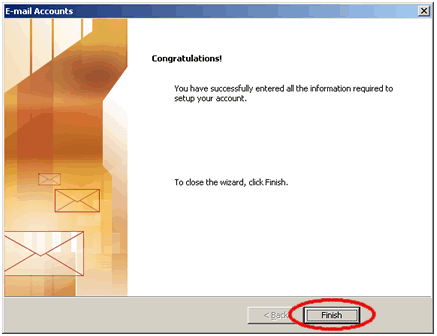Email Client Configuration - POP3
Operating
System: Windows
Email Program: Microsoft Outlook
1. Open Outlook and click on the Tools menu.
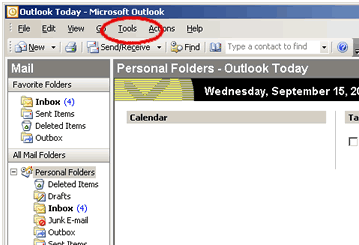
2. Click on 'E-mail Accounts'.
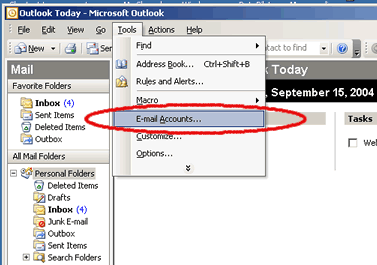
3. The Email Account wizard opens. Select 'Add a new e-mail account' and press 'Next'.
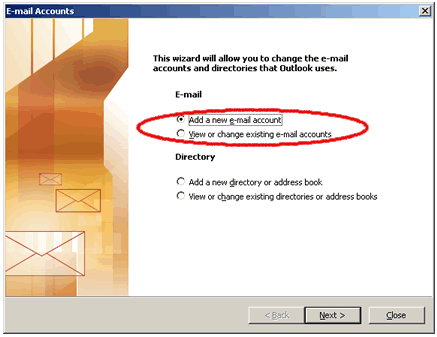
4. Select 'POP3' and click on 'Next' to continue.
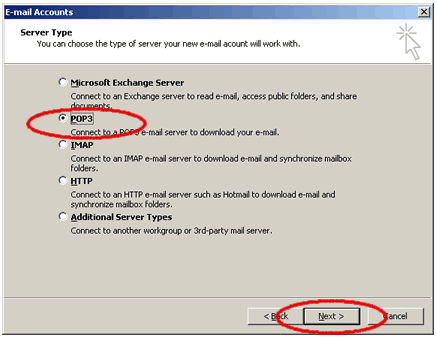
5. Note: You will receive these email settings from your mail administrator. Enter the following items;
- Your name
- Your email address
- Your POP3 username. This is your full email address (for example 'tom.reid@demo-3.net')
- Your password and check the box 'Remember Password'.
- Your incoming mailserver (also known as your POP3 server.)
- Your outgoing mailserver (also known as your SMTP server.).
Click on 'More Settings' to continue.
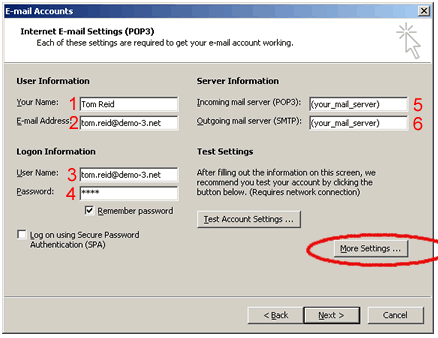
6. Enter a name for your mail account. We suggest you use your email address. Then enter your email address again for your reply email address. Click on the 'Outgoing Server' tab to continue.
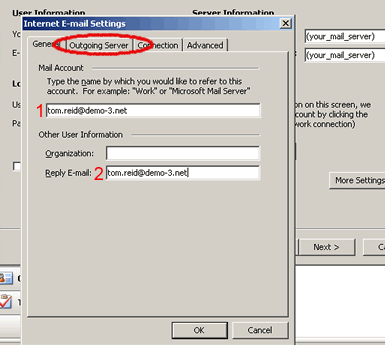
7. Check the box for 'My outgoing server requires authentication' and select 'Use same settings as my incoming server'. Then click on 'OK' to continue
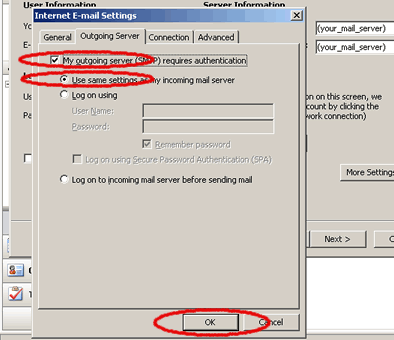
8. To test your settings and to make sure you can connect to our mailservers click on 'Test Account Settings ... '.
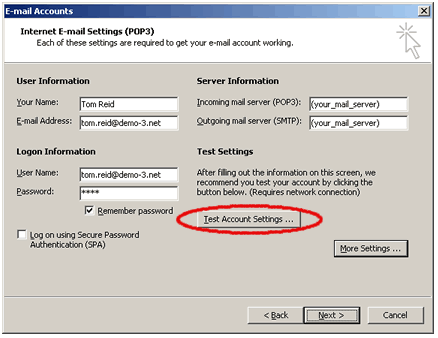
9. If the test is successful you will a screen similar to the one below. If not go back and check your settings and check the troubleshooting section in this manual. Click on 'Close' to continue.
Note: If the test does not 'Find outgoing mailserver' or cannot 'Send a test e-mail message' and all of your settings look correct then you should check with the provider of your Internet connection. Many cable, telephone and dial-up Internet providers block connections to remote outgoing mailservers (SMTP) to prevent spamming from their networks. If so, you will need to use your internet provider's outgoing mailserver. Get the name of the mailserver and enter it in the 'Outgoing mail server' text box. Then try the test again.
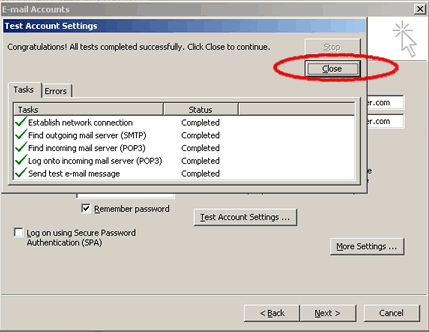
10. Click on 'Next' to continue.
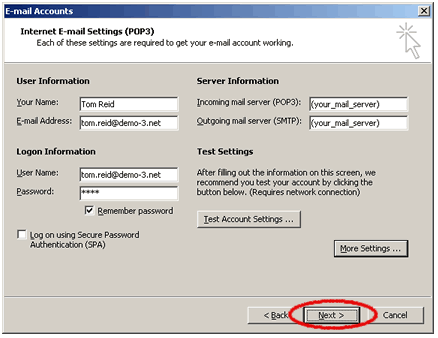
11. Click on 'Finish' to complete the setup.
